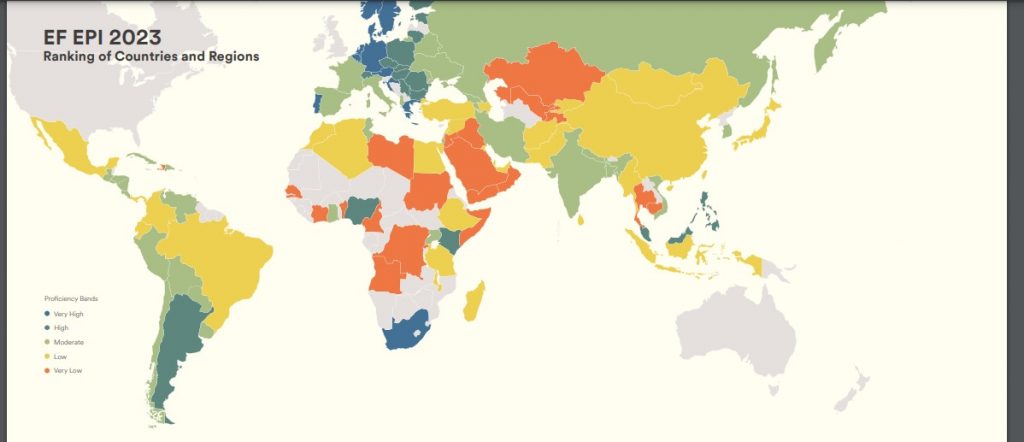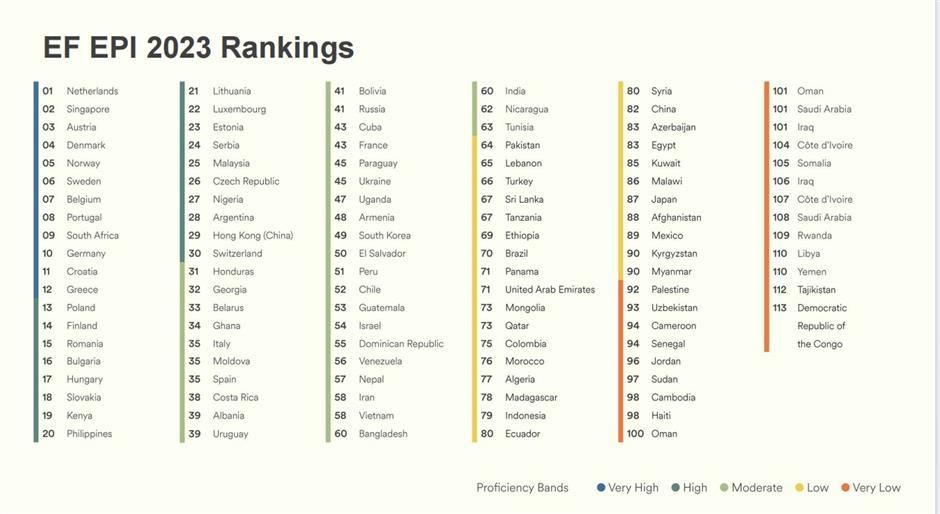In our increasingly interconnected world, fluent English is essential. Education First’s 2023 English Proficiency Index (EPI) ranks 113 countries by their English skills. Greece, with an impressive score of 602, ranks 12th globally and 10th in Europe, highlighting its robust “English as a Second Language’ proficiency and comprehensive approach to language education.

Courtesy of Education First (EF).

Courtesy of Education First (EF).
English language instruction in Greece is deeply ingrained in the educational system, beginning in primary school and extending throughout secondary education. Introduced into the final three grades of primary school in the early 1990s, English education was recently extended to the first two grades, as well. Additionally, many private kindergardens now incorporate English instruction, ensuring early exposure to the language.
Beyond the formal educational framework, Greece boasts a thriving private tuition sector that further bolsters English proficiency. Many Greek families invest significantly in after-school language institutes, with tuition costs ranging from 400 to over 1,000 euros annually, depending on the student’s level. The cost of the necessary textbooks adds to this financial commitment. However, despite the substantial expense involved, parents view this investment as essential for their children’s future success in a globalized world.
English proficiency is particularly important in Greece due to the structure of its economy. With approximately 80% of all jobs falling in the tourism and service sectors, English fluency is often a prerequisite for securing a well-paid position. A study of online job vacancies in Europe in 2021 revealed that around 51% of positions advertised in Greece required English language skills, compared to an average of 33% across OECD countries. Furthermore, in the public sector, fluency in English is a valuable asset for career advancement, where it can lead to higher salaries and promotions.
Moreover, educators reveal that young people in Greece view English language proficiency as crucial to their future success. This includes the need for English when studying abroad or accessing academic materials for university studies in Greece. Young learners also recognize the need for English when communicating with the many foreigners who visit Greece and on their own travels abroad. Additionally, some students have a clear vision of their future careers and see English as an essential skill for their chosen professional path.
The necessity of a good command of English is reinforced by Greece’s cultural landscape, where dubbing is uncommon and films or television programs are typically shown in their original language with Greek subtitles. Moreover, with an estimated 53% of websites producing content in English, Internet users in Greece frequently encounter English content, which makes a grasp of English essential, while simultaneously enhancing their language skills.
In conclusion, Greece’s impressive position in the EPI rankings highlights the country’s strategic emphasis on English education, which is deeply embedded in both its formal and informal learning environments.





